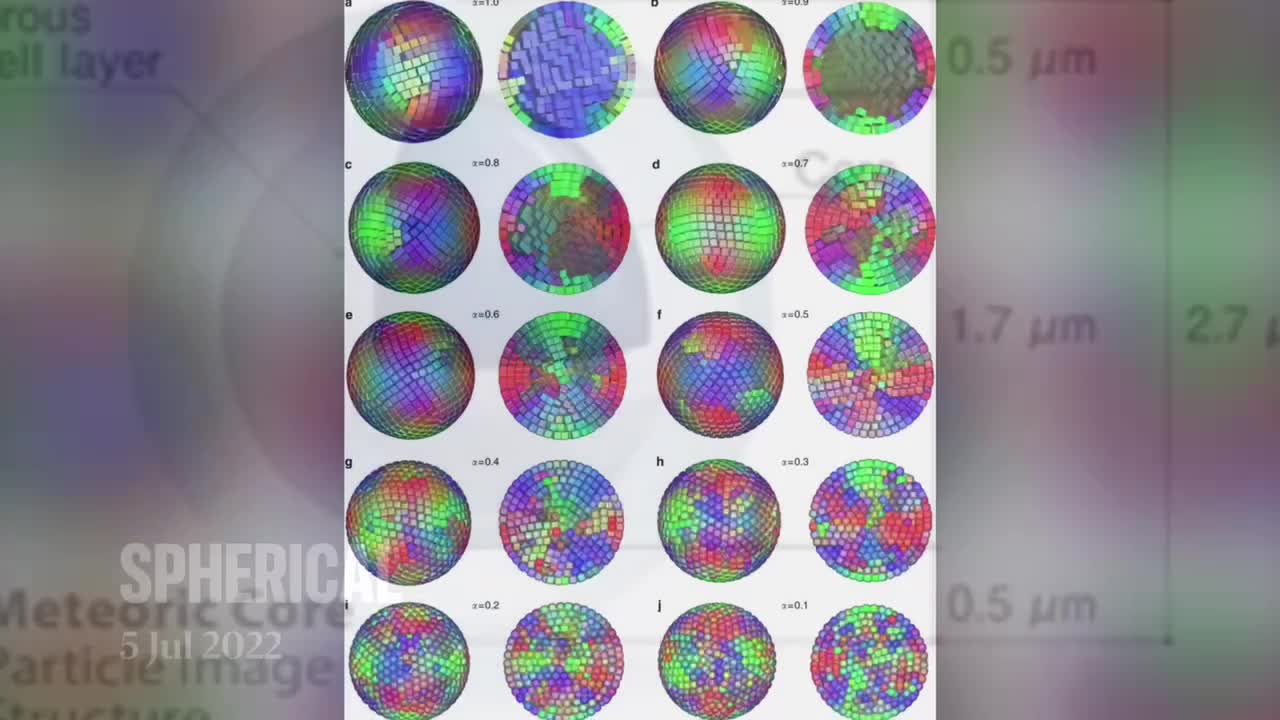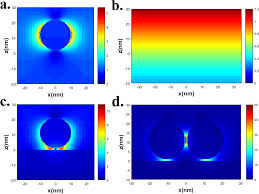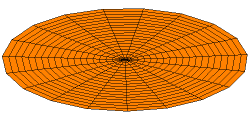The Mac
@TheMac
04 July, 10:34
Notice: Undefined index: tg1tga_access in /home/admin/www/anonup.com/themes/default/apps/timeline/post.phtml on line 396
Linda Moore
@mykismet06350
05 July, 11:44
In response The Mac to his Publication
88 ( )/with out ceasing/I shall abide
Notice: Undefined index: tg1tga_access in /home/admin/www/anonup.com/themes/default/apps/timeline/post.phtml on line 396
The Mac
@TheMac
05 July, 04:02
In response Linda Moore to her Publication
Notice: Undefined index: tg1tga_access in /home/admin/www/anonup.com/themes/default/apps/timeline/post.phtml on line 396
The Mac
@TheMac
05 July, 04:09
In response The Mac to his Publication
bead
/biːd/
verb
gerund or present participle: beading
1.
decorate or cover with beads.
"I beaded the jacket by hand"
string (beads) together.
"seashells beaded into belts"
2.
cover (a surface) with drops of moisture.
"his face was beaded with perspiration"
Origin
Old English gebed ‘prayer’, of Germanic origin; related to Dutch bede and German Gebet, also to bid2. Current senses derive from the use of a rosary, each bead representing a prayer.
/biːd/
verb
gerund or present participle: beading
1.
decorate or cover with beads.
"I beaded the jacket by hand"
string (beads) together.
"seashells beaded into belts"
2.
cover (a surface) with drops of moisture.
"his face was beaded with perspiration"
Origin
Old English gebed ‘prayer’, of Germanic origin; related to Dutch bede and German Gebet, also to bid2. Current senses derive from the use of a rosary, each bead representing a prayer.
Notice: Undefined index: tg1tga_access in /home/admin/www/anonup.com/themes/default/apps/timeline/post.phtml on line 396
The Mac
@TheMac
05 July, 04:15
In response The Mac to his Publication
"I am better served by obedience to My laws and conformity with My plans than by ritual and offerings.
To listen to the words of the Sacred Writings while striving to understand them is better in My sight than offerings of flesh and treasure which benefit the priests more than they do
Me.
Among the things, which I abhor, few are more detestable than the hypocritical offerings of the evildoer.
The offerings and worship of a hypocrite are an abomination to Me.
Evil enters the realm beyond Earth as a foul smell, and the worse one of all is the smell of hypocrisy.
Those who pander to hypocrites or do not actively oppose them are also creatures of
evil."
To listen to the words of the Sacred Writings while striving to understand them is better in My sight than offerings of flesh and treasure which benefit the priests more than they do
Me.
Among the things, which I abhor, few are more detestable than the hypocritical offerings of the evildoer.
The offerings and worship of a hypocrite are an abomination to Me.
Evil enters the realm beyond Earth as a foul smell, and the worse one of all is the smell of hypocrisy.
Those who pander to hypocrites or do not actively oppose them are also creatures of
evil."
Notice: Undefined index: tg1tga_access in /home/admin/www/anonup.com/themes/default/apps/timeline/post.phtml on line 396
The Mac
@TheMac
05 July, 04:18
In response The Mac to his Publication
"I know too well the deceit, to which men are prone.
The adulterer and fornicator preach chastity for others, while the liar declares the virtues of Truth.
The thief preaches honesty and the lewd-minded professes modesty.
Men say one thing and mean another, while all too often the half or slanted truth replaces the real thing.
Men may deceive themselves and other
men, but I am not deceived.
Now I say, let men first cleanse their own souls and eradicate hypocrisy before presuming to approach Me.
Men may well cry out, "Why does God remain mute; why has He deserted Me?" Do they think their deeds are hidden or that I cannot read the secrets of their hearts?"
The adulterer and fornicator preach chastity for others, while the liar declares the virtues of Truth.
The thief preaches honesty and the lewd-minded professes modesty.
Men say one thing and mean another, while all too often the half or slanted truth replaces the real thing.
Men may deceive themselves and other
men, but I am not deceived.
Now I say, let men first cleanse their own souls and eradicate hypocrisy before presuming to approach Me.
Men may well cry out, "Why does God remain mute; why has He deserted Me?" Do they think their deeds are hidden or that I cannot read the secrets of their hearts?"
Notice: Undefined index: tg1tga_access in /home/admin/www/anonup.com/themes/default/apps/timeline/post.phtml on line 396
The Mac
@TheMac
05 July, 04:20
In response The Mac to his Publication
"Worship by men of iniquity is mere mockery.
How rare the sincere and genuine heart!
Were men indeed deserted by their God, they would have none to blame but themselves.
Do men think their lack of kindness and consideration for others, their insincerity and inconsistency are truly hidden from Me?
I am the All Knowing One.
I see too little love of goodness in the hearts of men and too much fear for the consequences of their deeds."
How rare the sincere and genuine heart!
Were men indeed deserted by their God, they would have none to blame but themselves.
Do men think their lack of kindness and consideration for others, their insincerity and inconsistency are truly hidden from Me?
I am the All Knowing One.
I see too little love of goodness in the hearts of men and too much fear for the consequences of their deeds."
Notice: Undefined index: tg1tga_access in /home/admin/www/anonup.com/themes/default/apps/timeline/post.phtml on line 396
The Mac
@TheMac
05 July, 04:22
In response The Mac to his Publication
I see too little love of goodness in the hearts of men and too much fear for the consequences of their deeds."
Notice: Undefined index: tg1tga_access in /home/admin/www/anonup.com/themes/default/apps/timeline/post.phtml on line 396
The Mac
@TheMac
05 July, 04:23
In response The Mac to his Publication
"‘Who'd believe it?’ ‘Who indeed?’"
Notice: Undefined index: tg1tga_access in /home/admin/www/anonup.com/themes/default/apps/timeline/post.phtml on line 396
Linda Moore
@mykismet06350
05 July, 08:22
In response The Mac to his Publication
"‘Who'd believe it?’-139/ Heresy: denotes
(a) "a choosing, choice" (from haireomai, "to choose"); then, "that which is chosen," and hence, "an opinion," especially a self-willed opinion, which is substituted for submission to the power of truth, and leads to division and the formation of sects,
Gen 3:11
And he said, Who told thee that thou wast naked? Hast thou eaten of the tree, whereof I commanded thee that thou shouldest not eat?
(a) "a choosing, choice" (from haireomai, "to choose"); then, "that which is chosen," and hence, "an opinion," especially a self-willed opinion, which is substituted for submission to the power of truth, and leads to division and the formation of sects,
Gen 3:11
And he said, Who told thee that thou wast naked? Hast thou eaten of the tree, whereof I commanded thee that thou shouldest not eat?
Notice: Undefined index: tg1tga_access in /home/admin/www/anonup.com/themes/default/apps/timeline/post.phtml on line 396
The Mac
@TheMac
05 July, 10:26
In response Linda Moore to her Publication
Plain unadorned facts, without concealment or embellishment.
For example, What I've told you is the naked truth.
For example, What I've told you is the naked truth.
Notice: Undefined index: tg1tga_access in /home/admin/www/anonup.com/themes/default/apps/timeline/post.phtml on line 396
The Mac
@TheMac
05 July, 10:28
In response The Mac to his Publication
keyed
simple past tense and past participle of key
simple past tense and past participle of key
Notice: Undefined index: tg1tga_access in /home/admin/www/anonup.com/themes/default/apps/timeline/post.phtml on line 396
The Mac
@TheMac
05 July, 10:29
In response The Mac to his Publication
keyed (adj.)
1796, "having keys," from key (n.) in the musical sense. Also "to set the tone (of a musical instrument) to a particular key; hence figurative keyed up "excited, high-strung" (1889).
1796, "having keys," from key (n.) in the musical sense. Also "to set the tone (of a musical instrument) to a particular key; hence figurative keyed up "excited, high-strung" (1889).
Notice: Undefined index: tg1tga_access in /home/admin/www/anonup.com/themes/default/apps/timeline/post.phtml on line 396
The Mac
@TheMac
05 July, 10:32
In response The Mac to his Publication
beat tone[′bēt ‚tōn]
(engineering acoustics)
Musical tone due to beats, produced by the heterodyning of two high-frequency wave trains.
(engineering acoustics)
Musical tone due to beats, produced by the heterodyning of two high-frequency wave trains.
Notice: Undefined index: tg1tga_access in /home/admin/www/anonup.com/themes/default/apps/timeline/post.phtml on line 396
The Mac
@TheMac
05 July, 10:41
In response The Mac to his Publication
frequency (n.)
1550s, "state of being crowded" (now obsolete); 1640s, "fact of occurring often;" from Latin frequentia "an assembling in great numbers, a crowding; crowd, multitude, throng," from frequentem (see frequent). Sense in physics, "rate of recurrence," especially of a vibration, is from 1831. In radio electronics, frequency modulation (1922, abbreviated F.M.) as a system of broadcasting is distinguished from amplitude modulation (or A.M.).
1550s, "state of being crowded" (now obsolete); 1640s, "fact of occurring often;" from Latin frequentia "an assembling in great numbers, a crowding; crowd, multitude, throng," from frequentem (see frequent). Sense in physics, "rate of recurrence," especially of a vibration, is from 1831. In radio electronics, frequency modulation (1922, abbreviated F.M.) as a system of broadcasting is distinguished from amplitude modulation (or A.M.).
Notice: Undefined index: tg1tga_access in /home/admin/www/anonup.com/themes/default/apps/timeline/post.phtml on line 396
The Mac
@TheMac
05 July, 10:42
In response The Mac to his Publication
A normal mode of an oscillating system is a pattern of motion in which all parts of the system move sinusoidally with the same frequency and with a fixed phase relation. The free motion described by the normal modes takes place at fixed frequencies. These fixed frequencies of the normal modes of a system are known as its natural frequencies or resonant frequencies. A physical object, such as a building, bridge, or molecule, has a set of normal modes and their natural frequencies that depend on its structure, materials and boundary conditions. In music, normal modes of vibrating instruments (strings, air pipes, drums, etc.) are called "harmonics" or "overtones".
Notice: Undefined index: tg1tga_access in /home/admin/www/anonup.com/themes/default/apps/timeline/post.phtml on line 396
The Mac
@TheMac
05 July, 10:44
In response The Mac to his Publication
The most general motion of a system is a superposition of its normal modes. The modes are normal in the sense that they can move independently, that is to say that an excitation of one mode will never cause motion of a different mode. In mathematical terms, normal modes are orthogonal to each other.
Notice: Undefined index: tg1tga_access in /home/admin/www/anonup.com/themes/default/apps/timeline/post.phtml on line 396
The Mac
@TheMac
05 July, 10:45
In response The Mac to his Publication
Mode
Edit
In the wave theory of physics and engineering, a mode in a dynamical system is a standing wave state of excitation, in which all the components of the system will be affected sinusoidally at a fixed frequency associated with that mode.
Because no real system can perfectly fit under the standing wave framework, the mode concept is taken as a general characterization of specific states of oscillation, thus treating the dynamic system in a linear fashion, in which linear superposition of states can be performed.
Edit
In the wave theory of physics and engineering, a mode in a dynamical system is a standing wave state of excitation, in which all the components of the system will be affected sinusoidally at a fixed frequency associated with that mode.
Because no real system can perfectly fit under the standing wave framework, the mode concept is taken as a general characterization of specific states of oscillation, thus treating the dynamic system in a linear fashion, in which linear superposition of states can be performed.
Notice: Undefined index: tg1tga_access in /home/admin/www/anonup.com/themes/default/apps/timeline/post.phtml on line 396
The Mac
@TheMac
05 July, 10:47
In response The Mac to his Publication
Quantum superposition is a fundamental principle of quantum mechanics. It states that, much like waves in classical physics, any two (or more) quantum states can be added together ("superposed") and the result will be another valid quantum state; and conversely, that every quantum state can be represented as a sum of two or more other distinct states. Mathematically, it refers to a property of solutions to the Schrödinger equation; since the Schrödinger equation is linear, any linear combination of solutions will also be a solution
Notice: Undefined index: tg1tga_access in /home/admin/www/anonup.com/themes/default/apps/timeline/post.phtml on line 396
The Mac
@TheMac
05 July, 10:48
In response The Mac to his Publication
An example of a physically observable manifestation of the wave nature of quantum systems is the interference peaks from an electron beam in a double-slit experiment. The pattern is very similar to the one obtained by diffraction of classical waves.
Notice: Undefined index: tg1tga_access in /home/admin/www/anonup.com/themes/default/apps/timeline/post.phtml on line 396
The Mac
@TheMac
05 July, 10:51
In response The Mac to his Publication
Notice: Undefined index: tg1tga_access in /home/admin/www/anonup.com/themes/default/apps/timeline/post.phtml on line 396
The Mac
@TheMac
05 July, 10:53
In response The Mac to his Publication
In quantum computing, a qubit (/ˈkjuːbɪt/) or quantum bit is a basic unit of quantum information—the quantum version of the classic binary bit physically realized with a two-state device. A qubit is a two-state (or two-level) quantum-mechanical system, one of the simplest quantum systems displaying the peculiarity of quantum mechanics. Examples include the spin of the electron in which the two levels can be taken as spin up and spin down; or the polarization of a single photon in which the two states can be taken to be the vertical polarization and the horizontal polarization. In a classical system, a bit would have to be in one state or the other. However, quantum mechanics allows the qubit to be in a coherent superposition of both states simultaneously, a property that is fundamental to quantum mechanics and quantum computing.
Notice: Undefined index: tg1tga_access in /home/admin/www/anonup.com/themes/default/apps/timeline/post.phtml on line 396
The Mac
@TheMac
05 July, 10:56
In response The Mac to his Publication
A binary digit, characterized as 0 or 1, is used to represent information in classical computers. When averaged over both of its states (0,1), a binary digit can represent up to one bit of Shannon information, where a bit is the basic unit of information. However, in this article, the word bit is synonymous with a binary digit.
In classical computer technologies, a processed bit is implemented by one of two levels of low DC voltage, and whilst switching from one of these two levels to the other, a so-called "forbidden zone" between two logic levels must be passed as fast as possible, as electrical voltage cannot change from one level to another instantaneously.
In classical computer technologies, a processed bit is implemented by one of two levels of low DC voltage, and whilst switching from one of these two levels to the other, a so-called "forbidden zone" between two logic levels must be passed as fast as possible, as electrical voltage cannot change from one level to another instantaneously.
Notice: Undefined index: tg1tga_access in /home/admin/www/anonup.com/themes/default/apps/timeline/post.phtml on line 396
The Mac
@TheMac
05 July, 10:58
In response The Mac to his Publication
Where did the Australian rock band AC/DC get their name from? Why, Alternating Current and Direct Current, of course! Both AC and DC describe types of current flow in a circuit. In direct current (DC), the electric charge (current) only flows in one direction. Electric charge in alternating current (AC), on the other hand, changes direction periodically. The voltage in AC circuits also periodically reverses because the current changes direction.
Notice: Undefined index: tg1tga_access in /home/admin/www/anonup.com/themes/default/apps/timeline/post.phtml on line 396
AC/DC/13/43
(Who Made Who ) Released 24 May 1986 for movie Maximumy Overdrive written by Stephen King
to convert AC to DC
transformer/transformed
Rom 12:2 And do not be conformed to this world, but be transformed by the renewing of your mind, that you may prove what is that good and acceptable and perfect will of God.
transformed / metamorphóō, met-am-or-fo'-o; from G3326 and G3445; to transform (literally or figuratively, "metamorphose"):—change, transfigure, transform.
(Who Made Who ) Released 24 May 1986 for movie Maximumy Overdrive written by Stephen King
to convert AC to DC
transformer/transformed
Rom 12:2 And do not be conformed to this world, but be transformed by the renewing of your mind, that you may prove what is that good and acceptable and perfect will of God.
transformed / metamorphóō, met-am-or-fo'-o; from G3326 and G3445; to transform (literally or figuratively, "metamorphose"):—change, transfigure, transform.
10:15 PM - Jul 06, 2022
In response The Mac to his Publication
Only people mentioned by mykismet06350 in this post can reply







